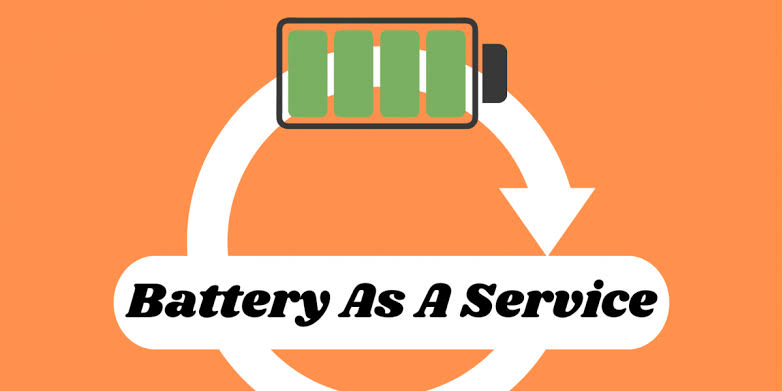By Emmanuel Onyeuche
Nigeria’s power sector faces numerous challenges, from inadequate generation capacity and unreliable distribution infrastructure. Despite being rich in natural resources, including abundant sunlight and hydroelectric potential, the country continues to struggle with frequent power outages, limited access to electricity, and an over-reliance on fossil fuels. According to reports from the system operators under the Transmission Company of Nigeria (TCN), Nigeria experienced four grid collapses in the first quarter of 2024, exacerbating the recurrent grid collapses experienced across the country in the last decade, exceeding over 200. Nigeria’s electricity generation capacity falls far short of demand, resulting in widespread power shortages and load shedding. The reliance on ageing, inefficient power plants, and limited investments in new generation infrastructure exacerbates the capacity shortfall. Fuel supply challenges, including gas supply disruptions to thermal power plants and inadequate maintenance of hydroelectric facilities, further constrain generation capacity.
Nigeria’s distribution infrastructure is characterised by high losses, theft, and inefficiencies, resulting in poor service quality and revenue losses for distribution companies (DisCos). Outdated equipment, inadequate investment in maintenance, and technical losses contribute to the unreliability of the distribution network. The lack of metering and billing systems, coupled with widespread non-payment of electricity bills, undermines the financial viability of DisCos and hampers infrastructure upgrades. Addressing the challenges of inadequate generation capacity and unreliable distribution infrastructure in Nigeria’s power sector requires a multifaceted approach that addresses policy, regulatory, financial, and, most significantly, technological barriers.
Globally, the landscape of the power industry is undergoing a transformative shift, and one of the key drivers of change is the advent of Battery as a Service (BaaS). This innovative approach to energy storage is revolutionising how nationsgenerate, store, and distribute electricity.
Understanding the Concept of Battery as a Service (BaaS)
The traditional model of energy storage involved large-scale, fixed infrastructure. BaaS introduces a paradigm shift by offering energy storage solutions as a service, which means that instead of purchasing and maintaining batteries outright, users can access the benefits of energy storage through a service agreement. In simple terms, BaaS provides battery storage solutions to customers on a subscription or pay-per-use basis, eliminating the need for upfront capital investment. Service providers install, maintain, and operate the battery systems, while customers benefit from reliable energy storage without the burden of ownership.
BaaS agreements often include performance guarantees and SLAs that define the expected service levels, uptime, efficiency, and response times, providing customers with assurance of reliable and consistent service delivery. BaaS offers customers flexibility in scaling up or down the battery capacity based on evolving energy needs, market conditions, and technological advancements, enabling agile and cost-effective solutions.
Impacts of BaaS across the Power Sector Value Chain
This novel approach has significant implications for consumers and the broader power industry. These impacts include:
• Enhancing Grid Resilience: One of the primary impacts of BaaS is its role in enhancing grid resilience. When deployed strategically, energy storage can act as a buffer during peak demand periods, grid outages, or fluctuations in renewable energy generation. BaaS enables utilities to optimise grid operations, improve reliability, and respond swiftly to dynamic energy demands.
• Facilitating Renewable Energy Integration: Integratingrenewable energy sources, such as solar and wind, has been a cornerstone of the global push towards sustainable energy, especially in emerging economies like Nigeria. However, these sources are inherently intermittent. BaaS plays a pivotal role in mitigating the challenges associated with renewable energy by providing a means to store excess energy during peak production times and release it when needed, ensuring a consistent and reliable power supply. With the effective and efficient implementation of a Virtual Power Plant, distributed energy resources (DERs) can be flexibly integrated, ensuring the power output of each DER unit (such as BaaS), as well as the power consumption of loads, to balance electricity supply and demand in real-time.
• Optimising Energy Management: BaaS empowers consumers with greater control over their energy usage. Through intelligent energy management systems, users can optimise when and how they draw power from the grid by leveraging stored energy during high electricity prices or grid stress, reducing consumer costs and contributing to overall grid efficiency.
• Disrupting Traditional Utility Models: The rise of BaaS is disrupting traditional utility models. As more consumers and businesses opt for energy storage as a service, utilities face challenges adapting their business models to accommodate these changes. Decouplingenergy generation and storage introduces new dynamics, requiring utilities to reassess their roles in the evolving energy ecosystem.
• Promoting Decentralisation: BaaS fosters decentralisation by allowing for distributed energy storage solutions. This shift towards localised energy storage reduces the need for massive centralised power plants and long-distance transmission infrastructure, as seen in Nigeria. It also promotes energy independence and resilience at the community level.
• Addressing Environmental Concerns: Energy storage solutions contribute to environmental sustainability, particularly those incorporated into BaaS models. By enabling a smoother integration of renewable energy sources, reducing reliance on fossil fuels during peak demand, and minimising grid inefficiencies, BaaS is crucial in promoting the country’s commitment to climate change and reducing greenhouse gas (GHG) emissions.
Bottlenecks and Considerations
As Nigeria seeks to modernise its power sector and address the chronic challenges of electricity generation, distribution, and reliability, innovative solutions such as BaaS are gaining traction. BaaS ensures grid stabilisation, renewable energy integration, and enhanced reliability. However, its implementation in the Nigerian context is not without challenges. Balancing the benefits with the challenges wouldbe integral to the successful integration of BaaS into the power industry. Some of the critical challenges of BaaS on the Nigerian power system dynamics include:
• Limited Infrastructure and Grid Constraints: Nigeria’s power infrastructure faces significant limitations, including ageing transmission and distribution networks, voltage instability, and frequency fluctuations. Integrating large-scale battery storage systems into the existing grid infrastructure poses technical challenges, including compatibility issues, grid stability concerns, and synchronisation requirements.
• Financing and Investment Barriers: The upfront capital costs of deploying battery storage systems are considerable, making it challenging for utilities and developers to finance BaaS projects. Limited access to affordable financing, high interest rates, and perceived investment risks deter private sector participation in BaaS initiatives, hindering the scaling-up of battery storage deployments.
• Policy and Regulatory Uncertainties: Regulatorycomplexities, policy inconsistencies, and institutional challenges characterise Nigeria’s power sector, which creates uncertainties for BaaS investors and operators. The lack of clear regulatory frameworks governing BaaS contracts, grid interconnection standards, and revenue models hampers market development and stifles investor confidence.
• Technical and Operational Risks: Ensuring the reliability, safety, and performance of battery storage systems in Nigeria’s harsh operating conditions, including high temperatures, humidity, and grid instabilities, poses operational challenges. Inadequate skills and capacity among local technicians, limited maintenance infrastructure, and supply chain constraints may compromise the effectiveness and longevity of BaaS deployments.
• Grid Integration and Market Dynamics: Integrating battery storage into Nigeria’s electricity market requires coordination among multiple relevant stakeholders, including grid operators, regulators (NERC), utilities (DisCos), and independent power producers. The absence of market mechanisms, such as ancillary services markets and demand response programs, constrains the monetisation of BaaS benefits, such as grid support services and peak shaving.
• Environmental and Sustainability Implications: The sourcing, manufacturing, and disposal of battery storage systems raise environmental and sustainability concerns, including resource depletion, pollution, and waste management challenges. Promoting environmentally responsible practices, such as recycling, reuse, and lifecycle assessments, is essential for mitigating the environmental footprint of BaaS deployments and ensuring long-term sustainability.
• Socio-Economic Considerations: Addressing equity concerns, ensuring access to BaaS benefits for underserved communities, and minimising potential social disparities in BaaS adoption is critical for fostering inclusive and sustainable energy transitions. Balancing economic incentives, affordability, and environmental considerations in BaaS pricing models and tariff structures is essential for maximising societal welfare and minimising adverse impacts on vulnerable populations. Also, raising awareness among consumers about the benefits of BaaS and dispelling misconceptions or concerns related to battery ownership and management is vital.
Conclusion
Battery as a Service represents a disruptive force in the power industry, reshaping how we conceive and manage energy storage. From bolstering grid resilience to facilitating renewable energy integration and challenging traditional utility models, the impact of BaaS is profound and far-reaching. As the energy landscape continues to evolve, embracing innovation in energy storage would be pivotal in building a sustainable and resilient power infrastructure for the future. Overcoming the challenges of implementing BaaS in Nigeria’s power system dynamics requires a coordinated effort from policymakers, regulators, utilities, investors, and technology providers. Nigeria can unlock the transformative potential of BaaS to enhance grid reliability, integrate renewable energy, and accelerate its transition to a sustainable energy future. As Battery as a Service continues to gain traction, its impact on power industry dynamics will evolve.
(Emmanuel Onyeuche, PhD, is an Energy Policy Analyst)



